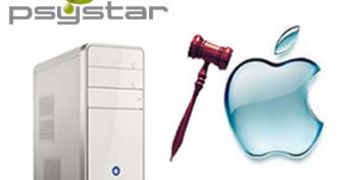Apple and Psystar seek to restrict access to certain trade secrets and software code in order to avoid any information leaks as they approach the discovery process that will precede a formal trial. The material in question may consist of documents, software code, interrogatories, deposition testimony, and other information found during discovery, and it is "not intended to govern" the trial, according to AppleInsider. The trial is scheduled for November 9.
Earlier this month, Psystar amended its counter-claim against Apple, charging the company of misusing its software copyright to prevent OS X from working on non-Apple computers. Now, the Judge (Alsup) will be establishing the guidelines of protection during that phase of the litigation, the report says. The above-mentioned protected materials can only be used for prosecuting or defending the legal action, according to the 18-page order.
"If any party or third party believes that disclosure of Discovery Materials would affect its competitive position, security interests, intellectual properties, or technological developments in an adverse manner," the order states, "that party or third party may designate the Discovery Materials as 'CONFIDENTIAL – ATTORNEYS' EYES ONLY.'"
"The designation... shall be limited to Discovery Materials that the disclosing part in good faith believes contain extremely sensitive confidential information, the disclosure of which would create a substantial risk of serious competitive injury," the order continues.
"The producing party shall make available a laser printer with commercially reasonable printing speeds for on-site printing during inspection of the Software Code," reads the part where it is stated that every person who enters and leaves the room must sign and date a log, while no written or electronic record can be made of the software code. One exception is mentioned, and that is the "laser printer."
According to the filings, printing is allowed only when "reasonably necessary" for case preparation. Also, only the portions needed can be printed. At the end of all legal proceedings, those documents must be returned to the producing party.

 14 DAY TRIAL //
14 DAY TRIAL //